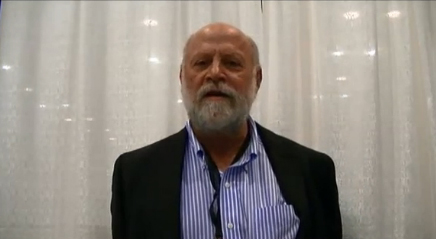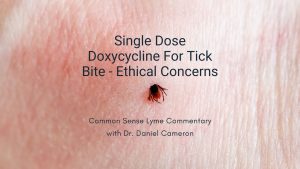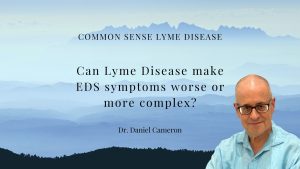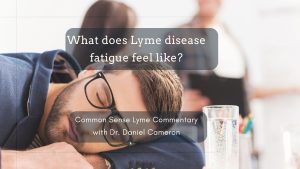Call for your appointment today 914-666-4665 | Mt. Kisco, New York

In a 2014 interview, Dr. Eugene Shapiro, dismissed patients’ concerns over chronic symptoms associated with Lyme disease And recommended the medical community “figure out ways to reduce healthcare-seeking behaviors” by patients who are ill and told they do not have Lyme disease.
Shapiro expressed his concerns after reviewing Yale Medical Center’s patient database and finding that more than 50% of referrals to the pediatric infectious disease clinic were for suspected Lyme disease.
But out of those referrals, he claims “between 80-90% in fact did not have active Lyme disease, but had chronic symptoms likely unrelated to Lyme disease, which we term ‘medically unexplained symptoms’.”
(Note: There is no way to determine if a Borrelia burgdorferi (Bb) infection is active or inactive.)
[bctt tweet=”Yale doctor dismisses chronic symptoms in children as not Lyme related. Kids diagnosed with ‘medically unexplained symptoms.’ ” username=”DrDanielCameron”]
So, what happened to those patients after Dr. Shapiro and colleagues at the center diagnosed them with ‘medically unexplained symptoms’? Yale Medical Center wanted to find out. Follow-up phone calls revealed that:
- “Approximately [50%] of the parents were not happy with the results of the [Yale] consult visit;
- “Nearly [50%] [of the patients] received additional treatment [elsewhere] for these ongoing symptoms;”
- “More than [50%] sought [help from] other providers, other than their primary care physicians because of the symptoms.”
“It’s very clear,” Shapiro says, “that simply telling parents that Lyme disease is not the cause of these non-specific symptoms, such as fatigue, various pain syndromes, is not sufficient.”
“Very frequently, these parents and patients are seeking affirmation that the symptoms are real. And they are real. They are just not caused by Lyme disease.”
So, “we need to figure out ways to reduce healthcare-seeking behaviors where patients are trying to often get treated unnecessarily with anti-microbials.”
Medically unexplained symptoms
The term “medically unexplained symptoms” (MUS) has been used in patients with significant symptoms without a physical disease.1 The term also includes individuals with overlapping clusters of symptoms such as irritable bowel syndrome, fibromyalgia or chronic fatigue.
The most common symptoms attributed to MUS: pain, including diffuse myalgias, arthralgias, low back pain, headache, and dysuria.1 Other symptoms include fatigue and insomnia, tinnitus, atypical facial pain, chest pain, palpitations, dyspnea, bloating, nausea, abdominal discomfort, constipation, and diarrhea, chronic pelvic pain, dyspareunia, vulvodynia, and dysmenorrhea, pseudoseizures, dizziness, weakness.1
MUS is presumed to be a psychiatric diagnosis. Treatment of MUS has been dominated by talk therapies.2 Dr. Unigwe writes that “persons with medically unexplained symptoms are often not perceived as having chronic, enduring, mental and physical illness.”
Lyme disease patients may be misdiagnosed as MUS, in part due to the poor sensitivity of Lyme tests. Out of 104 patients diagnosed by an EM rash, 41% tested negative before and after treatment.3
The majority of seropositive individuals on both acute and convalescent serology had a positive IgM and a negative IgG western blot. “These findings underline the difficulty for rheumatologists in identifying a prior exposure to Lyme disease in caring for patients with medically unexplained symptoms or fibromyalgia-like syndromes.”3
Editor’s Note: Whether it is our patient or our child, seeking a second medical opinion, consulting with other specialists and vigorously researching every avenue that might improve the health and quality of life for that child is of the utmost importance. No physician should discourage families from seeking to find treatment that works and will bring relief to their child.
Related Articles:
How the incidence of an EM rash can be inflated
Study finds misdiagnosis and delayed diagnosis common for Lyme disease patients
Case report: persistent pain and fatigue after treatment for Lyme disease
References:
- Isaac ML, Paauw DS. Medically unexplained symptoms. The Medical clinics of North America. May 2014;98(3):663-672.
- Unigwe C, Rowett M, Udo I. Reflections on the management of medically unexplained symptoms. The psychiatric bulletin. Oct 2014;38(5):252.
- Rebman AW, Crowder LA, Kirkpatrick A, Aucott JN. Characteristics of seroconversion and implications for diagnosis of post-treatment Lyme disease syndrome: acute and convalescent serology among a prospective cohort of early Lyme disease patients. Clin Rheumatol. Jun 13 2014.



